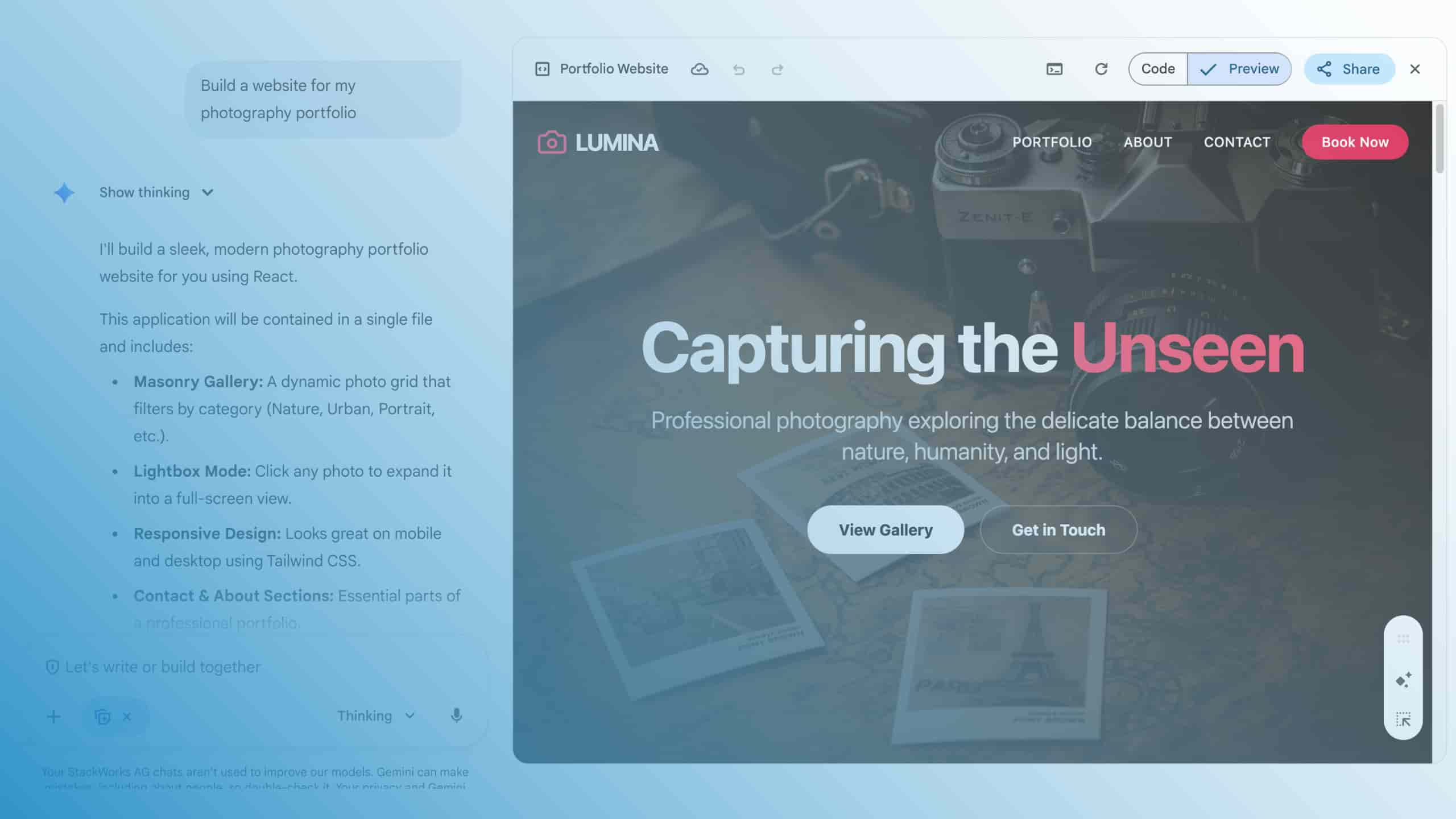Chromebooks in everyday developer life: your Linux terminal in the cloud

Developers juggle a large number of projects on a daily basis and use various technologies, frameworks and configurations. The frequent switching between projects and working environments, be it from laptop to desktop or vice versa, poses a challenge in keeping configurations consistent. This requires special care to ensure that everything works smoothly on every machine.
How can Chromebooks be used in combination with cloud workstations for software development?
An elegant solution is the use of Chromebooks as mobile work devices, supplemented by cloud workstations for maximum performance. Chromebooks not only offer simple and centralized management functions, but also boot up in seconds, are easy to transport and, thanks to Chrome OS, are protected against many common threats. But what does this mean for developers?
Cloud-native development with Linux power, locally or in the cloud
Ideally, software development should already be container-based. This simplifies the setup considerably. In combination with Google Cloud Workstations, both mobility and full portability can be ensured. You can choose whether you want to host the entire Linux-based development environment in the cloud or use it locally on your Chromebook:
- Flexibility: Work from anywhere, whether in the office, in a café or at home - with the familiar development environment. If more power is required, work can continue seamlessly in the cloud.
- Collaboration: Easily share your development environments with your team and work together on projects - whether in the cloud or locally.
- Cost efficiency: With Chromebooks and Google Cloud Workstations, you only pay for the resources you actually use. You can also manage updates and configuration changes easily and centrally. This facilitates both the onboarding of new developers and the replacement or renewal of hardware.
The most important tools for Linux developers
Whether you choose cloud development or a local Linux environment, Chromebooks give you access to a variety of powerful tools that optimize workflow:
- Visual Studio Code: The popular code editor is also available as a web version and runs smoothly on Chromebooks.
- IntelliJ Idea: No matter which IDE is preferred, IntelliJ Idea, PyCharm or PhpStorm, but of course the iconic text editor VIM works just as well.
- Linux development environment: Thanks to Crostini, a complete Linux development environment (e.g. Debian, Ubuntu) can be installed and used on the Chromebook. All common Linux tools are available and offer everything you need for modern software development.
Application scenario for the Chromebook
Imagine this: You are a web developer who wants to work flexibly from anywhere and are often in a café in Zurich working on a new web project with your Chromebook. You open VS Code and start writing HTML, CSS and JavaScript. The familiar environment of the editor feels comfortable, even if you are not sitting in front of your powerful desktop PC.
After a brief change of location to the office, you continue working on the screen exactly where you left off in the café. Suddenly, your desktop computer crashes and won't turn back on. Fortunately, you can quickly use a replacement device and, thanks to cloud workstations and container-based development, pick up where you left off within minutes to meet the deadline.
Tech-Talk
The installation and configuration of software such as IDEs on the Chromebooks is controlled centrally by IT and can be adapted to the needs of different user groups. A standardized configuration is created for the Google Workstations, which includes installed tools, frameworks and IDEs.
Each developer can then log in to their personal workstation via SSH, VS Code or the browser. In case of inactivity (e.g. after 60 minutes), the workstation is automatically paused.
If the application is developed in Developer Containers, you can work seamlessly both on the Chromebook (with Docker, Dev Containers and VS Code) and on the Cloud Workstation in the same environment.
Result:
Chromebooks have become powerful tools for software developers. They offer flexibility, performance and security and are attractively priced.
At StackWorks, we believe that Chromebooks, combined with the power of containers, have the potential to revolutionize the way we develop. Try it out and let us know what you think!
Happy coding! 🤓 Your StackWorks team






